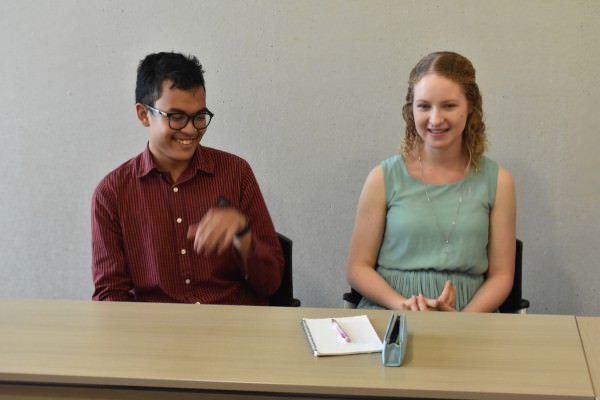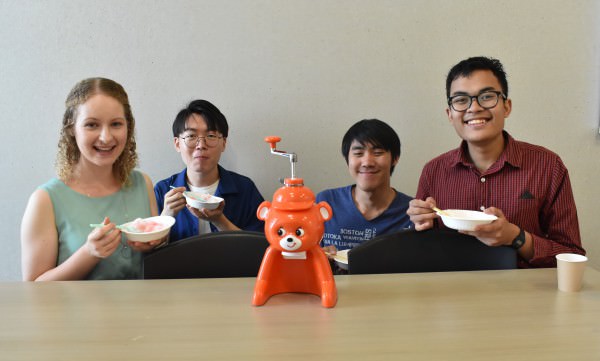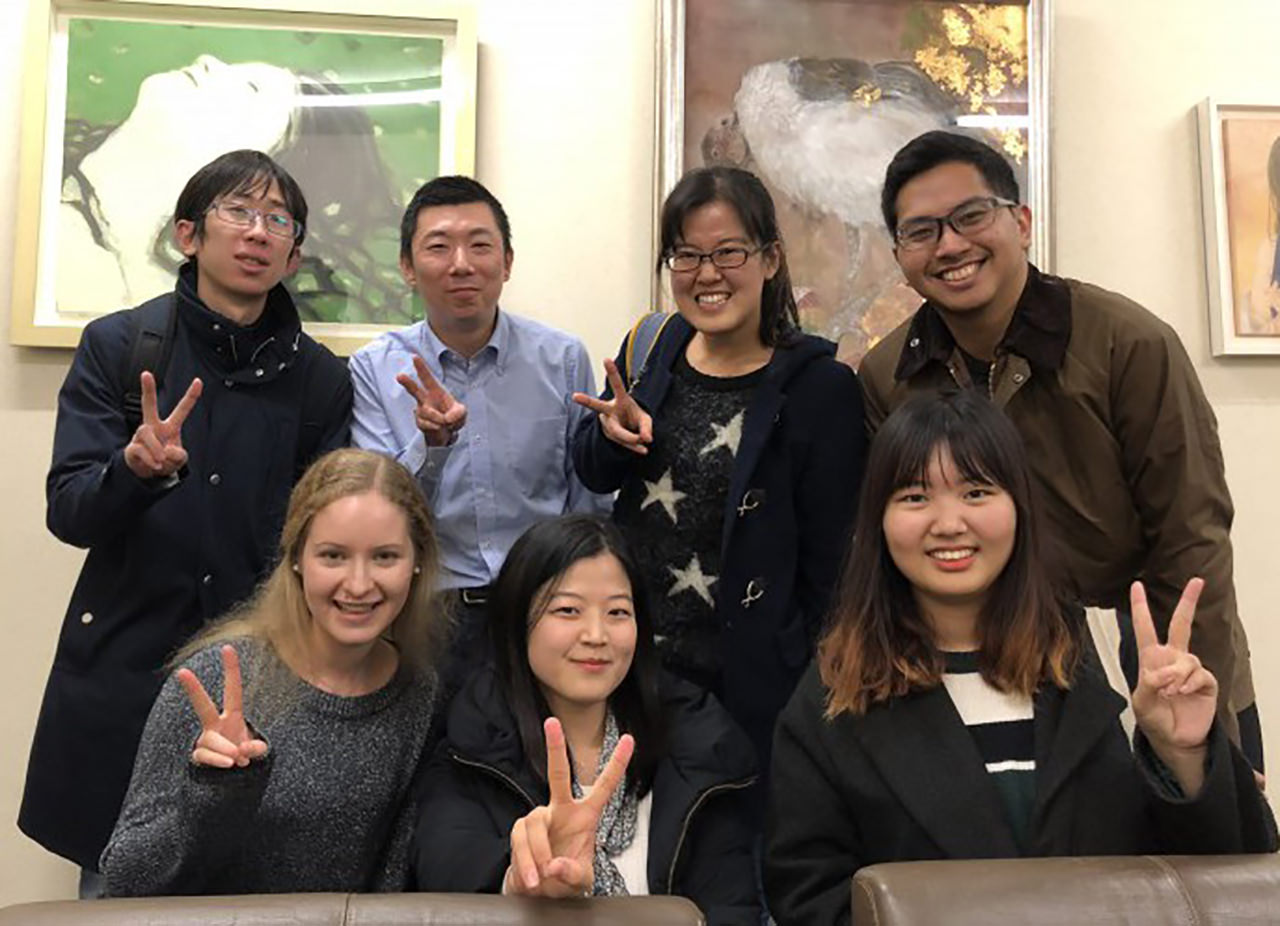Culture Shock Round Two: A Conversation with Students Comparing Cultures
2018.11.26
Is university a “time to play”?
Adhiqa: “It was hard for me when I first came to Japan, because people are very strict with time here.”
Katrina: “I think university students in Japan are the opposite, though. A lot of people just regularly stroll in late.”
Adhiqa: “That’s true, people in university do become really lax about time!”
Katrina: “I don’t know if this is the reason or not, but maybe because Japanese students have to follow so many rules in elementary, middle, and high school, and then again once they enter a company, so university is the only time when they can sort of take a breather and not care so much about things like time. That’s the impression I get from my friends.
‘Of course, there are some students that are really hard workers, too, but there are definitely others that are sleeping all day.”
Adhiqa: “(laughs) Yep, you see that a lot in university! Everyone seems to think that university is a time to have fun.”
ShaoJie: “University is only four years, so they want to take it easy during the time that they have. I think universities in China are worse, though—more students playing games and not paying attention. Maybe even more than Japan?”
Katrina: “There are lots of people goofing off in American schools, too, but…no, I feel like there are more people like that in Japan.”
ShaoJie: “In China, the education system is so strict that students aren’t really able to have too much fun from the time they’re in elementary school up to university. When you start university, you move away from your parents for the first time and start living on your own, and you’re free to do what you want for the first time. I think a lot of people feel like they want to try all of the things they weren’t able to do until then, all at once. Like romance—in China, a lot of young people are told they’re not allowed to date or be in relationships before university.”
Katrina: “I think a lot of Japanese school clubs and activities forbid romance, too.”
ShaoJie: “Right. In China, when you go to university, and you’re suddenly allowed to date, you’re not sure what to do. It’s like you suddenly become an adult, but you’re not prepared. You don’t know about love. (laughs) It’s kind of a shame. You know all those Japanese movies about young people, movies about high schoolers falling in love? Young people in China kind of wish they could have that.”
Katrina: “I have some Japanese friends like that, too: friends that went to all-boys or all-girls high schools, and grew up watching movies about high school romance, but they weren’t able to experience it firsthand. Then when they get to university, they want to make it a reality.”
Adhiqa: “In Indonesia it’s a little different. High school is the period that’s the most fun and free. It’s not that it’s so especially strict before high school, but high school is kind of the climax of that carefree youth. What you do at university determines your future, so everyone works pretty seriously there. It’s typical to work hard at university, and then when you come back home during breaks, you can relax and have fun.”
Pattana: “In Thailand, I think both high school and university are pretty fun, actually. (laughs) Of the two, though, I think high school is more strict. It’s a little similar to China: when you go to university, you move away from your parents and you’re more free.”
School events
In Japanese high schools, it’s typical to have seasonal events, like sports or cultural festivals in autumn and a marathon in winter, but these events aren’t typical for many international students.
Katrina: “We had speech contests! We would have individual speech contests, and then compete in teams in national debate contests. We also had mock trial clubs, and everyone got really into those.”
(Japan doesn’t have much of a custom of speech or debate contests, and instead often has choral performances or other events.)
Pattana: “In Thailand, we had sports festivals in high school and in university. Everyone got along really well.”
And, of course, dialects
One of the fun things about studying abroad in Kyoto is that you’ll get a taste of some of Japan’s non-standard dialects, including arguably it’s most well-known, the Kansai region’s Kansai-ben dialect.
Adhiqa: “Personally, Japanese dialects are still a point of culture shock. I can speak in Kansai-ben now, but I have difficulty when I have to use polite speech (keigo) or standard Japanese. It was easy for me to get lost in conversations. I like Kansai-ben now, though! It feels friendly.”
Katrina: “I feel like Japanese people really like it when non-Japanese people speak in Kansai-ben. Especially people from the Kansai area! Yesterday I was talking to someone I’d just met, and they got really excited that I spoke in Kansai-ben. I wasn’t quite expecting that reaction. (laughs)”
For these students, it seems, culture shock can also be a process of re-examining your own culture, and growing closer to your host culture on study abroad, too. It can be daunting, but it’s something to look forward to on your own study abroad journey in Japan, and in Kyoto especially!













